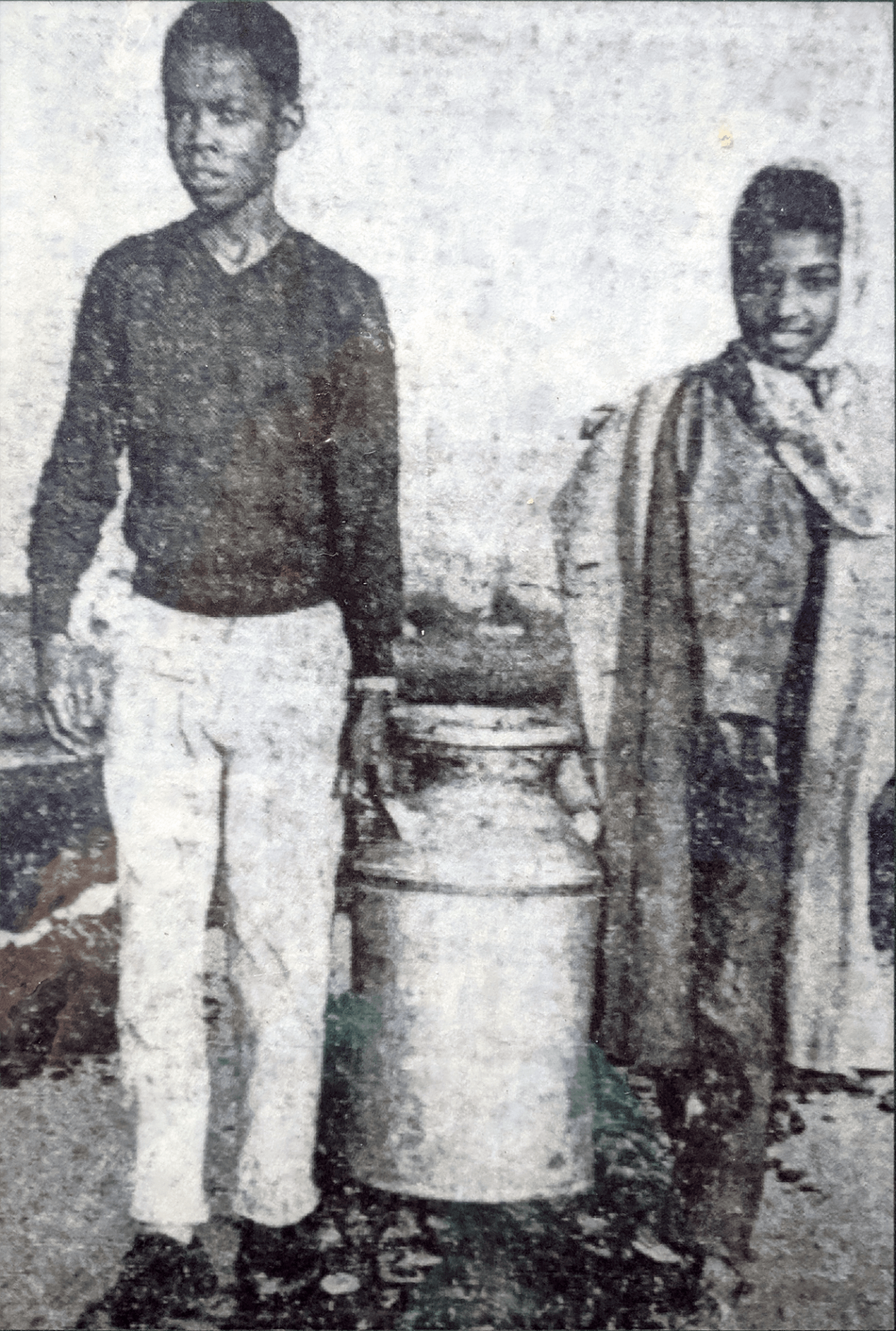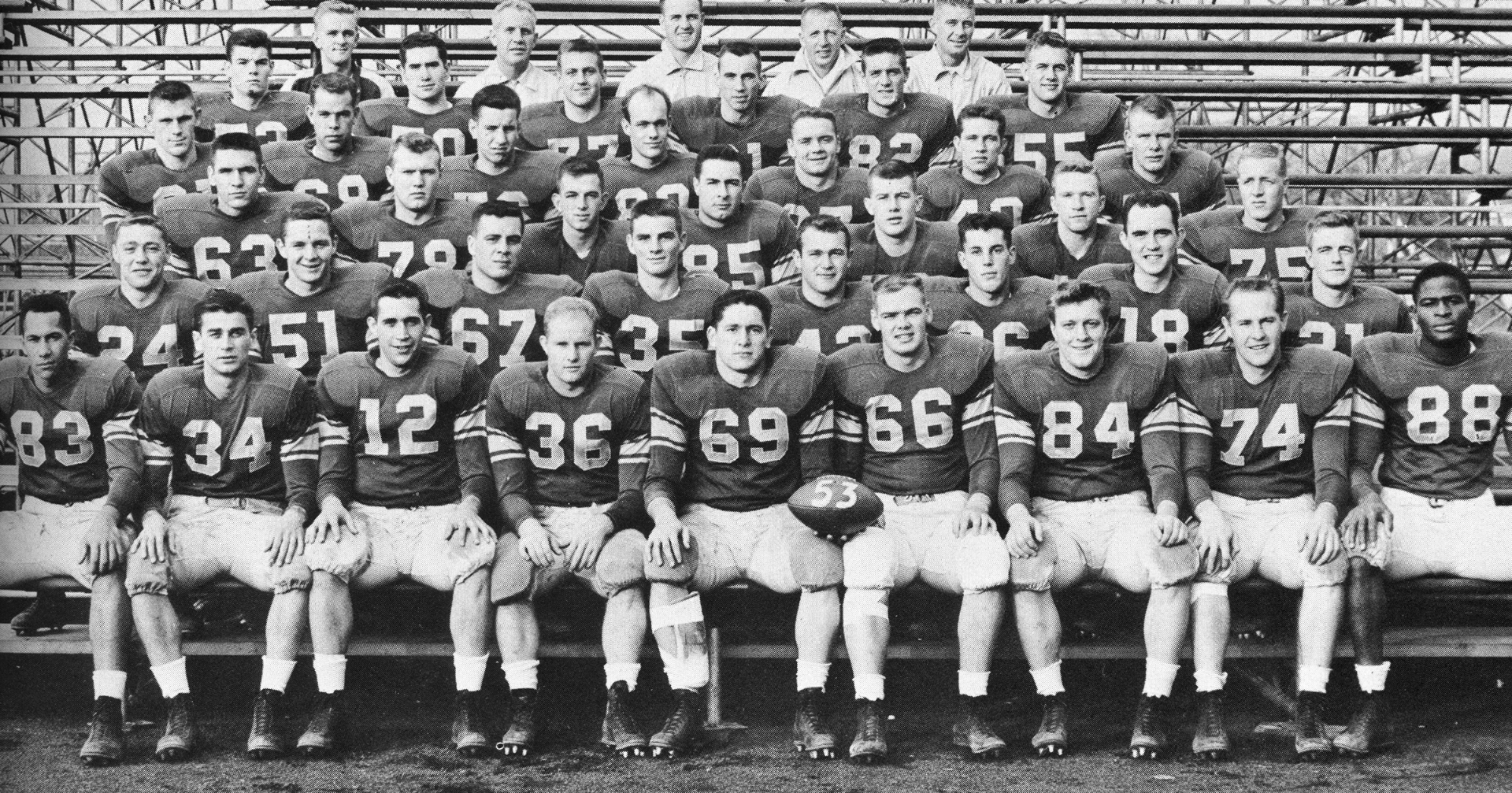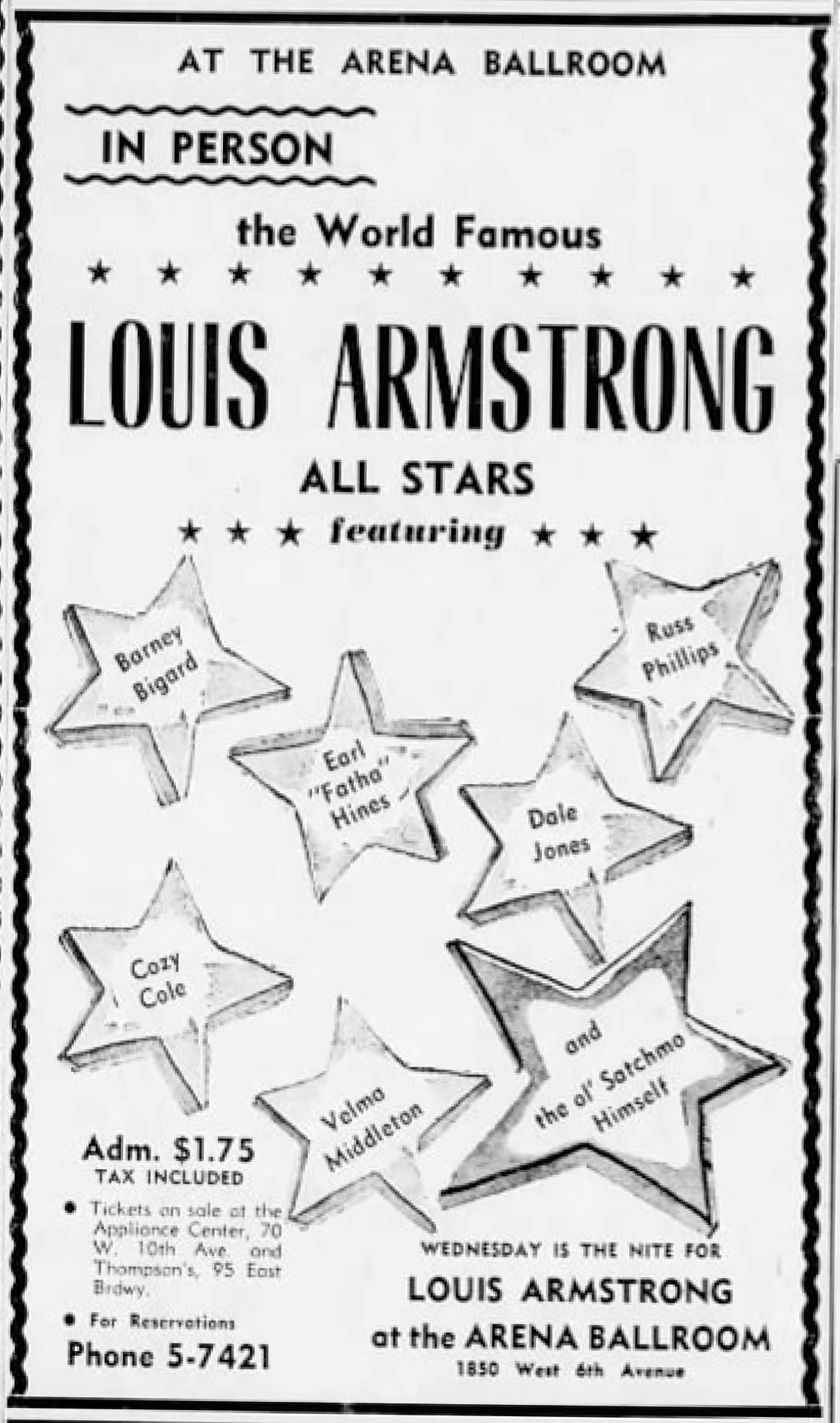“I thought if you went north and west, you’d get out from under all that discrimination, but it didn’t happen.”
– Mattie Reynolds, reflecting on her arrival to Eugene
(The Register-Guard by Annie Williams)
All across the U.S., urban renewal and redevelopment projects forced low-income people and minorities from their homes. Eugene was no different. In 1949, the Ferry Street settlement was demolished to make way for the Ferry Street Bridge. The tight-knit Black community was scattered, but not unmade. Through it all, they took care of each other.
A Place to Stay
Eugene’s hotels continued to shut their doors to Black travelers, even after Oregon’s 1953 Public Accomodations Act prohibited discrimination based on race. Once again, Eugene’s Black community stepped in to help.
The UO Ducks varsity football team in 1953.


